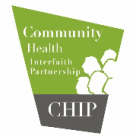In adults:
- Confused thinking
- Prolonged depression (sadness or irritability)
- Feelings of extreme highs and lows
- Excessive fears, worries and anxieties
- Social withdrawal
- Inappropriate expression of feelings
- Loss of interest in pleasurable activities
- Dramatic changes in eating or sleeping habits
- Strong feelings of anger, rage
- Delusions or hallucinations
- Growing inability to cope with daily problems and activities
- Suicidal thoughts
- Feelings of hopelessness
- Denial of obvious problems
- Numerous unexplained physical ailments
- Abuse of drugs or alcohol
- Unusual sensitivity to light or clothing
- Rapid weight loss
- Threatening to hurt or kill oneself
- Seeking access to means to hurt or kill oneself
- Talking or writing about death, dying or suicide
- Feeling hopeless
- Acting recklessly or engaging in risky activities
- Increased use of alcohol or drugs
- Withdrawing from family, friends, or society
- Appearing agitated or angry
- Having a dramatic change in mood
- Substance abuse
- Inability to cope with problems and daily activities
- Changes in sleeping and/or eating habits
- Excessive complaints of physical ailments
- Defiance of authority, truancy, theft, and/or vandalism
- Intense fear of weight gain
- Prolonged negative mood, often accompanied by poor appetite or thoughts of death
- Frequent outbursts of anger
- Changes in school performance
- Poor grades despite strong efforts
- Excessive worry or anxiety (i.e. refusing to go to bed or school)
- Hyperactivity
- Persistent nightmares
- Persistent disobedience or aggression
- Frequent temper tantrums
Download as pdf
Provided by Mental Health America of Georgia from Mental Health First Aid Training

